Meet Our Artisans
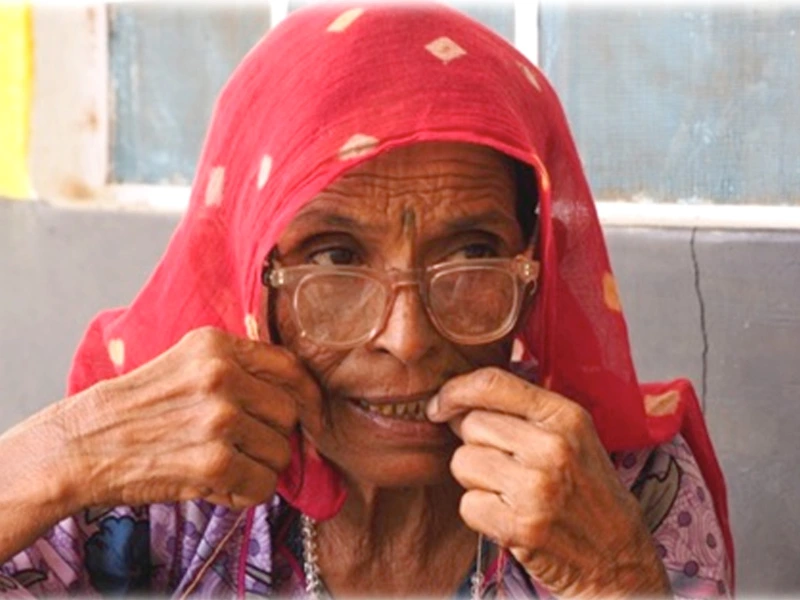
Tari Bai frowns through her spectacles, as she tries to thread the needle.
Embroidery is second nature to her, despite having difficulty in seeing the thread.
“I don’t remember”, is her response when asked about her age. She does remember crossing into India from Pakistan during the 1971 Indo-Pak war. After getting married, Taari Bai had 3 sons. Two of her sons passed away soon after her husband’s death. This meant that none of the earning members of the household were alive. This put Taari Bai in a precarious situation and she was left completely helpless.
Not one to give up, she took the responsibility of taking care of herself and her only child alive by working in the fields and refining her art of embroidery to earn a living.
During this phase of her life, she found herself with the opportunity of learning Kashida with URMUL and exploring the possibility of added income to help her get by. She took up the opportunity and has now been associated with URMUL Desert Crafts for more than 15 years. Her son is a farmer and has also opened up a general store.
Taari Bai has skilled up her work over the years and now is a major worker with URMUL. She has also been able to inspire her daughter-in-law to learn embroidery and she helps her out with the work.
Tari Bai
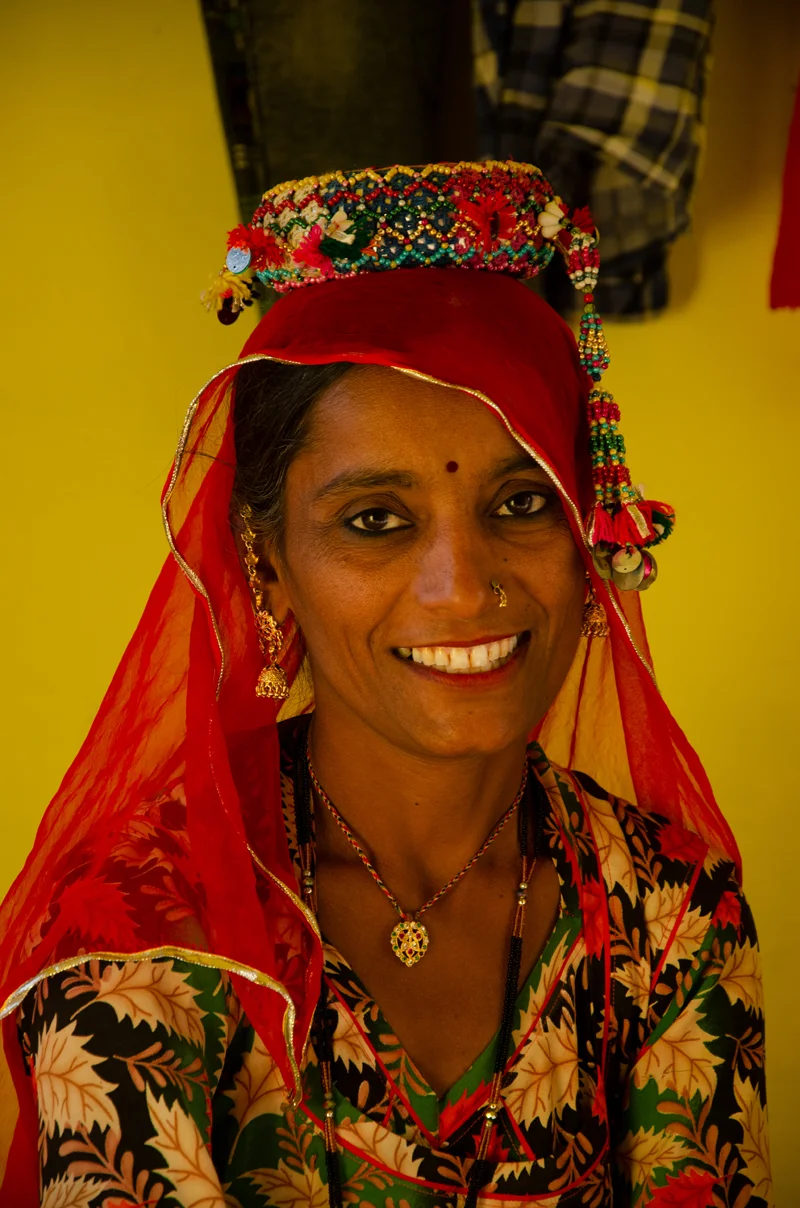
A tapestry of life unfolds in the hamlets of Rajasthan. Within this tapestry, like delicate threads intricately bound to their knots, the women and girls were once woven into the fabric of their homes. Venturing beyond their humble abodes, even for a mere 10-kilometre journey, was a notion that danced beyond their wildest dreams. Yet, much like the vibrant threads adorning a cloth, these resilient souls became the very essence that painted the desert with its minimalistic hues.
Mohini, one such young and vibrant thread, learned the art of kashida embroidery from her grandmother. Although she knew tailoring as well, it was through kashida that she revived her grandmother’s love and cherished memories. Encouraged by Urmul Seemant’s efforts, Mohini began working and even travelled to cities like Ahmedabad to work on samples for organisations like okhai. As her craft flourished, more girls and women joined her, inspired by her journey.
Mohini recalls attending a design college in Uttar Pradesh, where she conducted workshops for students who, in turn, introduced her to the art of thread work on leather. For her, the thick leather posed a challenge, while for the students, it was the delicate fabric. However, just as nature’s cycles acquaint one with different situations, she and her thread adapted and grew together.
Today, Mohini has received numerous awards and even had the opportunity to meet Priyanka Chopra for her remarkable work. She collaborates with various organisations, including Usha, but her initial journey started with Urmul Seemant IGP and still continues.
Now, the legacy of Mohini breathes life into dreamweavers. Young girls, their eyes shimmering with the echoes of ancestral wisdom, gather around the seasoned matriarchs of the community. Together, they embark on a voyage of craftsmanship, breathing life into threads that whisper enchanting tales. With each delicate stitch, their vibrant threads break free from the constraints of their knots, adorning fabrics that transform into vibrant canvases. And as these clothed masterpieces find homes upon willing shoulders, they become living tapestries, carrying within them the whispered stories woven by the spirited threads of Mohini.
Mohini
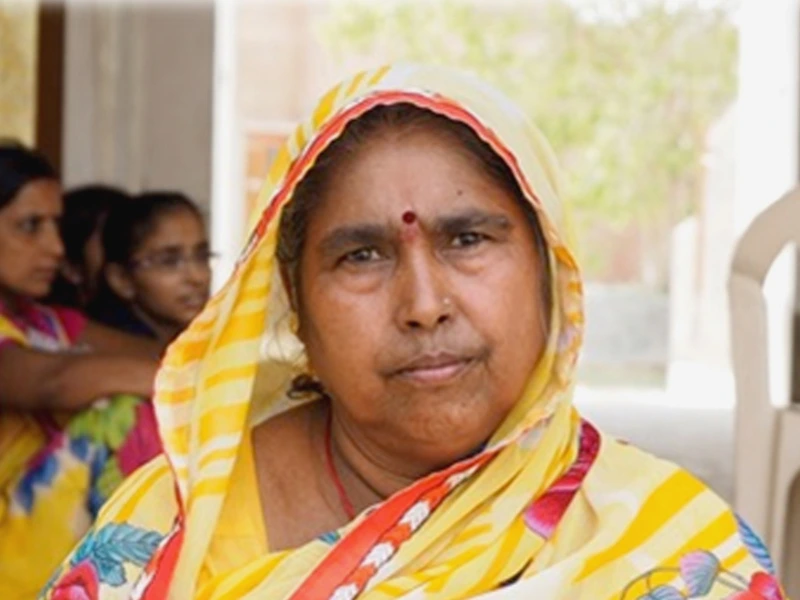
Giving up and not doing anything is not an option for Shanti Devi as she struggles every day to make ends meet. After a series of unfortunate events involving one of her sons dying in an accident and her husband leaving her for another woman, she has taken it upon herself to provide for her other son and herself.
She lives with her elder sister’s family as she has had no money to pay for her own house. With no support from anyone and her son’s responsibility completely on her shoulders, Shanti worked hard and learned to stitch in fifteen days of training by URMUL in her village Bajju.
Ever since she joined the URMUL training center at Bajju, she has shown great skill and an urge to learn and work better. She aims to expand her knowledge of the subject. She hopes to be able to become self-sufficient in the future and make a proper living out of these skills she learned in the training.
Shanti Devi
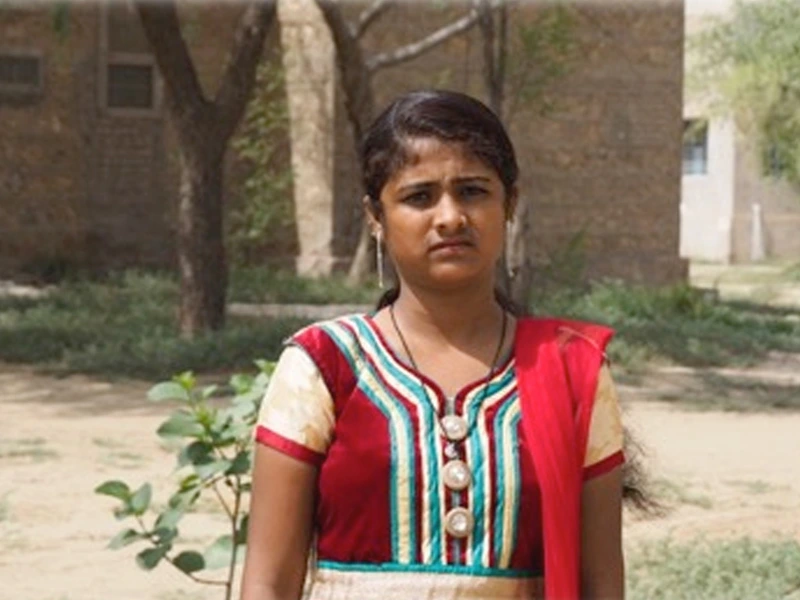
Under the roof of a small house in Kavni, Rajasthan lives an extraordinary young woman with talents that can leave people awestruck after they find out about her disabilities.
Meherbano was born mute and deaf to a driver father and a tailor mother. They were earning minimum wages and supported her 3 brothers of which 2 were suffering from the same condition as her.
This could not stop Meherbano from learning to dream and making things better for her. She learned to stitch to help her mother while earning extra income to support her family financially.
Through all her struggles she refused to back down from any challenge she faced and tackled each of them head-on. After learning about the training by URMUL she found yet another opportunity to add to her skills. She learned the art of tie and dye with the hopes that someday all her hard work will pay off in the end.
She works with unparalleled enthusiasm that has not been witnessed in anyone. The training has uplifted her spirits and gave her a new opportunity to learn and grow in life.
Meherbano
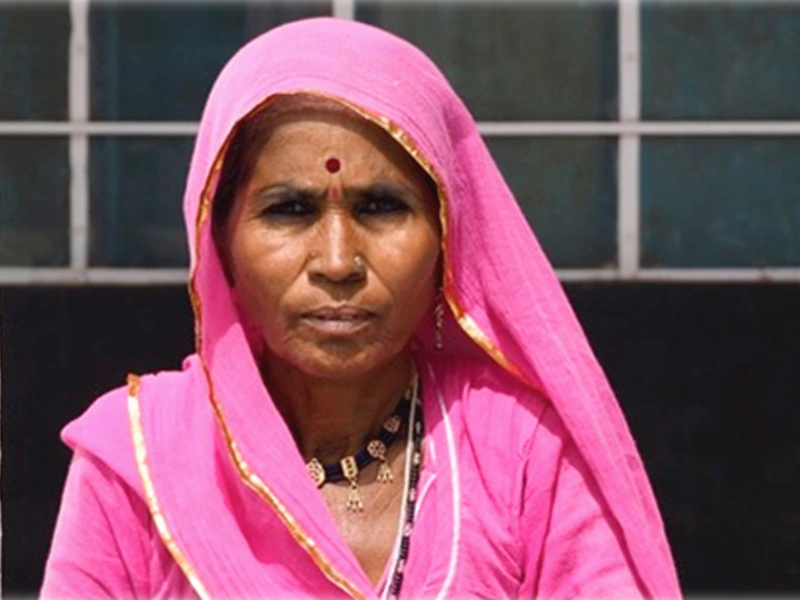
Saamu Bai was not always this brave: situations got her to become so A Pakistani migrant of the 173 war Saamu had experienced poverty and struggles in the Thar to a point where most would give up but she fought her way out.
The art of Kashida ran in her family. She was no exception to it ever since her childhood. All she needed was an opportunity to finesse her art. URMUL helped her with this and now it’s been 21 years of her association with the organisation.
Saamu Bai, is from village 2AD and is presently working with 40 women in her village training them on the intricacies of the art. She trains them in Kashida and helps them earn a living. Her eagerness to learn had her step out of the house and travel across places like Goa, Hyderabad, Delhi, and Varanasi for up-scaling her art. She also had her first flight experience in the process.
Saamu Bai never went to school, but today she maintains a register of all the women working with her in the village. She not only writes their details but also manages their accounts. She is an inspiration to the women in her village as she has shown them that hard work and commitment will get them the respect that they deserve. It would be a great means to add to the family income.
With her vast experience, Saamu Bai not only does Kashida but also helps in the designing process. Her journey began with URMUL’s training and today she gives the organisation al the credit for the tremendous support they extended over all the years

